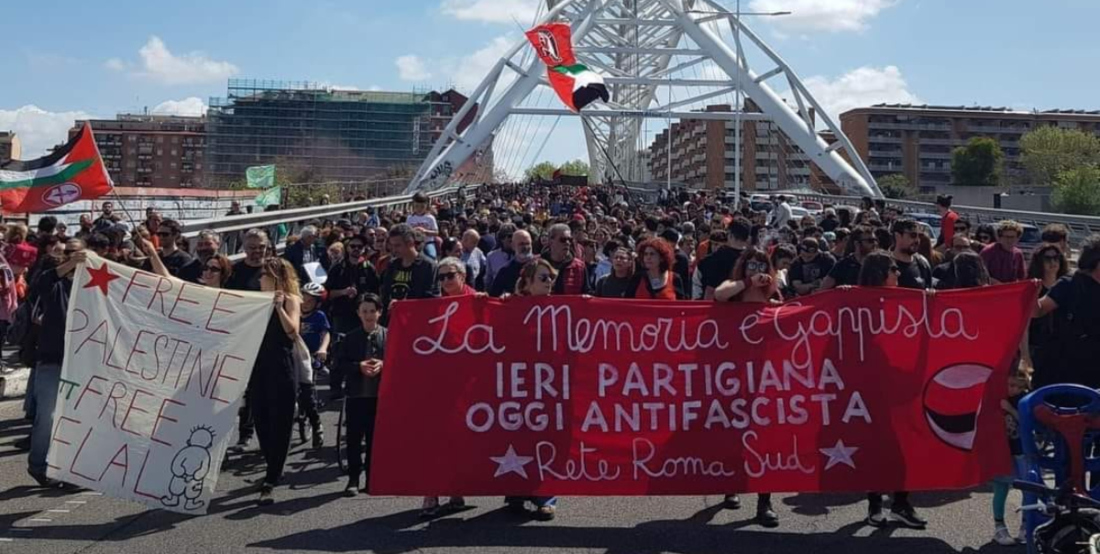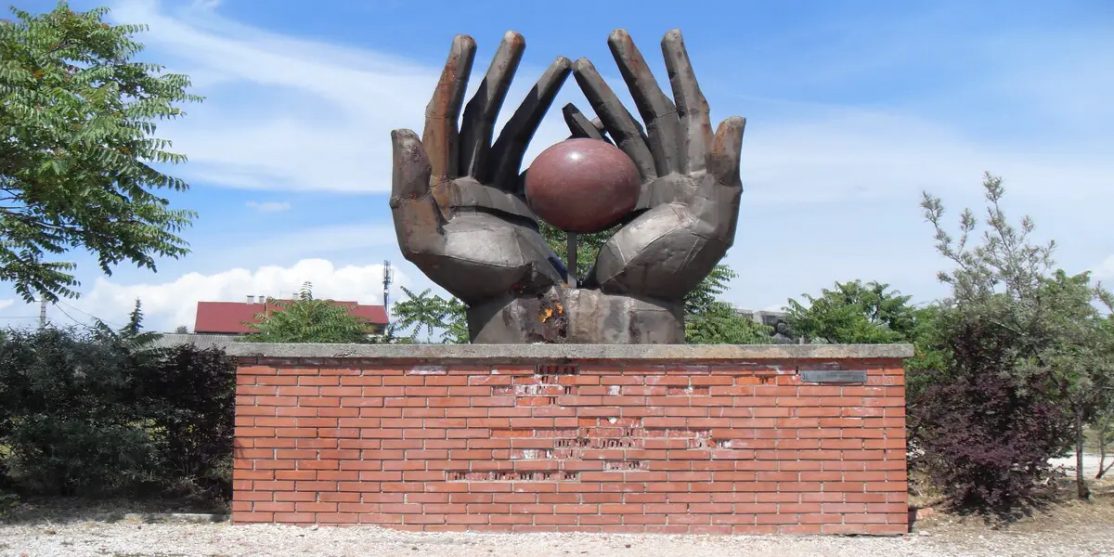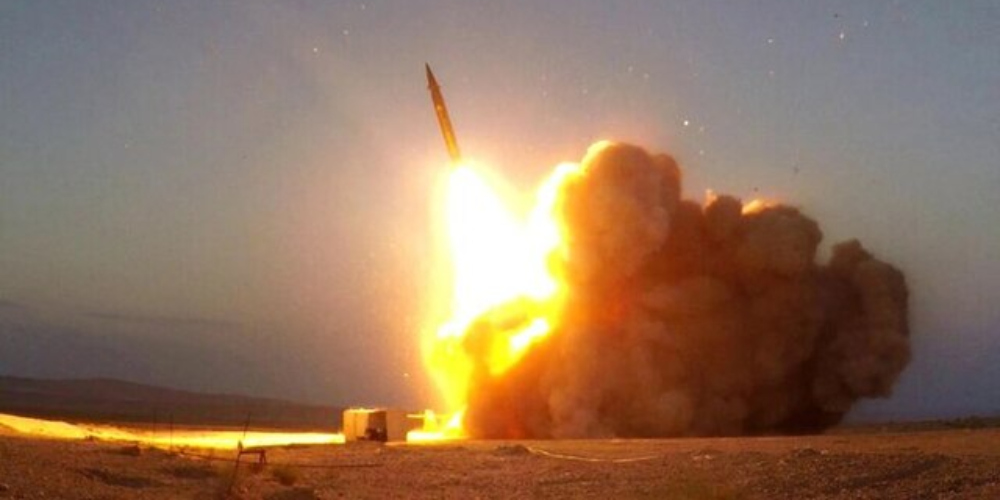MONDO
Civil War in Turkey and Middle East

We have been through a Third World War, which does not appear in the form of a generalized inter-state war contrary to the previous world wars. It is more like a civil war among “micro sovereign powers.” The postmodern character of this new world war mainly lies here.
This postmodern civil war is distinguished by two particular features. The first is the weakness of the libertarian forces in resistance (except for Kurdish freedom movement) compared with the prevalence of predominantly fascist parties to this war. The second is that every party involved in the war is also going through a war within itself. In other words, all of them are immersed into their own civil war. Needless to say, this war is a complex of exacerbated religious, sectarian and ethnical conflicts. WW III features like an endless and extensive civil war conducted through a multiplicity of civil wars.
Lenin’s response to WWI was to transform the imperialist war into a civil war. Our response could be at this moment in time “transforming the civil wars into revolutions.” However our expectations for displacement of these civil wars by revolutions are quite low. The present composition of forces does not offer prospects of revolution especially because the current war is insistently continued by conflicts either among or within counter-revolutionary forces. We do not expect a revolution to rise from this civil war, given that the role of opposition and resistance is occupied by the jihadist Islam even in Palestine, which has a long tradition of revolutionary resistance. The unbearable fact is that this war is produced from below and fascism is desired everywhere, as it is clearly seen in provocation of all these civil wars by counter-revolutionary forces. Among the forces partaking in this war, there is no other libertarian force than the Kurdish freedom movement.
To offer a general view of this ongoing global war, we may better introduce the current state of affairs under five topics and from the perspective of three antagonist tendencies. In what follows, we will focus on the left, the Islam, the variety of imperial and regional powers, the Kurdish freedom movement, and lastly on Syrian migrants in Turkey. The antagonist distribution of powers into modernist, postmodernist and alter-modernist tendencies will guide us in exploring this global scene of war among multiple actors.

1. The Left
How could this barbarian war be turned into a revolutionary opportunity? What may be the creative tendencies to grow out of this generalized crisis? Unfortunately, the current state of the left does not raise too much hope in this regard. The leftist tradition in Islamic countries of the Middle East and North Africa is not strongly rooted so much so that any background of social democratic left is even lacking. We do not have here a radical tradition of resistance against religion and the state. Following in the footsteps of modernist tradition, the left in general is dominated by an apology of nation state, which is a continuation of its anti-imperialist but anti-democratic character.
Modernism has never turned into a consolidated social power in the Middle East. Nation states have always been experienced everywhere as the domination of a politically reactionary and coercive force. Turkey, supposedly the first and only “secular and democratic” state in the region, is a distinctive example of this tension. Kemalism, the founding ideology of the Turkish Republic, has been already dissolved. In a word, modernism has been a total failure, from which the left also took its share. Identified with the West and modernism, the left has always been denounced by people as a sort of atheism. The Islamic society seems to adapt to none of the Western values, other than exchange value, that is money. The will to democracy or freedom has been crushed by the will to sovereignty.
The concomitant dissolution of modernism and the nation states in the region, which were once the founders of modernism, is accompanied by the rise of new powers. The overthrow and hanging of Saddam Hussein, and the rise of AKP to power in Turkey were two crucial moments in acceleration of this dissolution. It is still hard to anticipate which forces will come to occupy the spaces emptied. Political Islam seems all too powerful with its sound social base. The left immersed in a sort of social chauvinism due to its political roots and expectations strongly tied to modernism and nation state is unable to offer an alternative.
Turkey among other established Islamic countries seems to be the major place to invest our hopes again, given the increasing prospects for a new leftist wave thanks to the prevalence of the Kurdish freedom movement coupled with the successes recorded in Rojava. We have been going through constitution of a new left here, which started with Gezi resistance and reinforced by the increasing power of Peoples’ Democratic Party (HDP). Possibilities for an alter-modernist left are embodied in the Kurdish freedom movement. This is why we can expect Gezi to return but this time as much stronger.
Therefore the left may be said to be divided into two major tendencies: the modernist left which still champions nation state; and the alter-modernist left characterized by the refusal of nation state as represented by the Kurdish freedom movement. It is this division around which the civil war within the left itself is being fought.

2. The Islam
WW III is also a civil war within Islam. The history of Islam is largely devoid of those powerful moments of renewal as we see in the world history in Ancient Greece, during Renaissance, Enlightenment, and the rise of modernity, or later postmodernity. It is a religion which has been always tightly attached to the state. In this sense, Salafi movement is not a recent phenomenon of Islam. Islam is by nature Salafi in that it does not tolerate any reforms and is devoid of any capacity to renew itself.
The political tradition of Islam is largely based on caliphate and sultanship or emirates. The political culture is that of an allegiance. The sole decision maker is a caliphate, a sultan or an emir. Good and evil is up to the judgment of the sultan.
There are three moments of political crisis in the history of Islam: The first is the division of Islam into Sunni and Shiah sects as a result of the killing of Ali (the son-in-law of the prophet), and the second, the abolition of the Caliphate in the aftermath of the WW I and the consequent dissolution of political unity of Islam, and lastly, the repression and control of this crisis by the establishment of nation states. WW III has led to the exploding return of these three crises. The order of nation states could not be sustained any more in the Middle East.
As is known, more than half of the Iraqi population consists of Arabian Shias. The number of Kurds, who are also divided within themselves as Sunnis and Shias, is also considerable. In contrast to the composition of the population, the Saddam regime in Iraq was Sunni-origin. This is what exploded in Iraq. On the contrary, the larger part of the population including Kurds in Syria is Sunni while the Assad regime is Shia-origin. And this contradiction also exploded. Egypt and Turkey are Sunni-origin, too. We witnessed how Egypt also exploded.
Among all others, WW III offered Shia Iran an opportunity for an unprecedented prevalence within Islam in the Middle East. The Shia block is now in hold of power in both Iraq and Syria. Yemen and Gulf countries are divided within themselves. As a result, the Sunni block has never been so weak within the Islamic history before. This also explains why ISIS asserts itself as the only power to maintain the political unity of Islam through re-building the reign of Caliphate. Egypt has to watch in silence. The Muslim Brothers based in Egypt and Turkey as an established tendency within Islam, and Saudi Arabia representing Wahhabism are all in a state of panic due to the collapse of Sunni political Islam.
Islam is thrown into a civil war between the Shia and Sunni blocks, exacerbated by the civil war within the Sunni block itself.

3. Regional-global powers
The whole story goes back to the global strategy put to work with the occupation of Iraq. The purpose was to integrate Islam with Empire through a Protestanization to be carried by and on the Sunni sectors. Turkey was to be the main actor in the reformation of Islam, which also enabled the rise of AKP to power. The expansion of the Iranian Revolution could be prevented by an 8-year long war with Iraq in 1980s, which was also supported by Turkey, Saudi Arabia and Egypt. However Saddam’s occupation of Kuwait was also a declaration of a will to hold the leadership of Sunni Islam. This is how Saudi Arabia, Egypt, and Turkey together with the USA came to decide on the overthrow of Saddam.
However the occupation of Iraq led to the emergence of an uncontrollable Sunni power, which soon transformed Iraq into an Afghanistan. Then AKP in Turkey and the Muslim Brothers in Egypt together took the initiative for the integration of Islam with Empire. If it works, it would be perfect, they thought. The Sunni majority in Syria was under the control of Muslim Brothers, which could bring the Assad administration down. Hamas’ participation into elections was also part of this strategy. The Mubarak regime was overthrown by the Arabian Spring, which could then be provoked to extend to Syria. The Muslim Brothers in Egypt, who were hesitant in the beginning of the revolution, were able to capture it through elections. However when they took the power, they radicalized to become a Hamas in Egypt, repressing the opposition mercilessly. Things got further complicated as the jihadists got the hand on the Islamic opposition in Syria. ISIS was born from within this scene of power conflicts. In the end, the imperial strategy had to be revised.
The efforts of re-integrating Iran with Empire and the abandonment of the strategy of overthrowing the Assad regime were the immediate results of the revision of the imperial strategy. What followed was the coup d’etat in Egypt and the support of Iran and Syria by Russia. However with the revision in the imperial strategy, the efforts of Turkey and Saudi Arabia were canceled. And not surprisingly, both started their own civil wars: Saudi Arabia intervened into Yemen and Turkey declared a war against its Kurdish citizens.
Empire is what unfolds in this ongoing postmodern WW III. It is a war waged against the Islamic nation states. The dialectic of the postmodern WW III is embodied in these prolonged civil wars. It is this same dialectic which produced ISIS as an organization of micro-fascism, the enemy of life. And it also appears that modernism and nation state are still able to resist and hold their reign, given the positions taken by Russia, Iran, Egypt and Syria in the war. What is to come out of this virtuality of power relations will be decided by the latter.
Once the term civil war had a revolutionary content, of which today it is totally devoid. The reactionary war among the sovereign powers today appears in the form of a civil war. Imperial powers, nation states and postmodern micro-fascist forces involved in this war have all one thing in common that turns it into an extended civil war: a desire for fascism. The only force insistently affirming life and freedom in this bloodshed is the Kurdish Freedom Movement. Against the fascist powers of postmodernism and modernism, it is the only alter-modernist power of life.

4. The Kurdish freedom movement
The negotiation process between the Kurdish Freedom Movement and the Turkish state did not start three years ago when it was officially announced. It dates back to Oslo negotiations secretly held in 2011. The strategy pursued by AKP when it rose to power in 2002 was to undermine the traditional political power of the army leaning on the political support of the EU. The way to the dissolution of the first Republic was thereby opened. However for this strategy to be effectively pursued, the armed conflict with PKK had to be suspended. The political power of the army could not be undermined while the need for its military power continued. As soon as AKP succeeded to displace the Kemalist elite and achieved a total control over the state, the Oslo process was ended. The negotiations were to restart only after the inclusion of Abdullah Öcalan into the process.
The developments in Rojava became the hotspot of a power struggle during the whole negotiation process. The Turkish state first attempted to shape the course of developments in Rojava. The plan was to instrumentalize Rojava Kurds against the Assad regime. They expected PYD to alliance itself with the Islamic Syrian opposition. However PYD did not accept to become part of this strategy. The negotiation process was further thrown into tension.
In response, a second plan was put into exercise, built on the expected defeat of Kobane resistance by ISIS attacks. This bloody agreement between the Turkish state and ISIS exploded the resistances in Turkey in October 2014. With the ultimate victory of Kurds in Rojava, the scene completely changed again. The Kurds, once dismissed and oppressed by Arabian chauvinism, became an influential actor both in the region and on the international arena. The possibility of foundation of an autonomous region in Syria as with Iraq became a nightmare for the Turkish state. Besides, the Kurds became the only force to displace the Islamic opposition in both military and political terms. The effect of the change in balance of powers with the prevalence of PYD was also reflected in the increasing tension between Barzani and PYD. Barzani cooperated with the Turkish state in order to circumscribe the continuous expansion of PYD. The strategy of the Turkish state to weaken PKK and to get the upper hand in the negotiation process did not work out. The negotiation process was ended.
Then, as part of a third strategy, AKP agreed with the army again to wage a total war against PKK within and outside Turkish borders and to put pressure on the Rojava Kurds. The military members put into jail at the end of Ergenekon trials were all released as part of this agreement. And opening the military base in İncirlik to the international coalition forces was intended for increasing the pressure on PYD.
HDP’s unprecedented electoral victory in June 2015 was an important moment in the same process viewed from the point of view of libertarian forces. This victory was one of the most important outcomes of the ongoing negotiation process. HDP is more of a political project informed by a global point of view on social movements than a classical political party in itself. Its foundation was suggested by Abdullah Öcalan himself. Although it is usually disregarded, the Kurdish freedom movement is by no means dedicated only to the solution of a national question. The paradigm of democratic nation and democratic autonomy developed by the movement is suggested not only for Turkey but also for the whole Middle East and the world. In this sense, HDP is not a sort of alliance between the Kurdish movement and the Turkish left. It is an organization of self-defense and cooperation of the multitude of political singularities. HDP is an embodiment of the merging of Gezi resistance with Kurdish movement. It signifies the rise of a new left. Not surprisingly, the extension of the Kurdish movement to the whole county through HDP turned out to be the real threat that the state had to respond. The new body politic of the leftist forces had to be dismantled. This is the main reason behind the ongoing war waged by the state against all the libertarian forces.
Before the re-elections in November, many buildings of HDP were set fire, bombs were exploded in demonstrations, many of us faded away. Despite the merciless state terror, HDP repeated its success and passed the electoral threshold. However the demoralizing effect of the ongoing conflicts and an increasing sense of desperation were partly translated into a perception of a tension between positions of HDP and PKK. The starting of armed struggle again despite the political influence and legitimacy achieved by HDP led to discussions even within the left itself. However this only served to the ends of the state that insistently pursued a strategy of marginalizing HDP. The state tried to get the upper hand in this psychological warfare by fierce insults and attacks on HDP. And it actually succeeded, but only for a while.
The state supposed that it could defeat the Kurdish movement militarily in a few months. However the attacks were responded with unprecedented struggle. The urban resistance behind the trenches and barricades in several towns joined the resistance in Rojava. The expanding Kurdish resistance is inherently global, because the resistance in Rojava is also a resistance for the Paris Commune of the 21st century.
We are totally aware how merciless and cruel a counter-revolution could be. However what is so hard to admit for us is that 60 per cent of Turkish society desires fascism. The state and the society have become identified to a large extent. The Islam and the state gathered themselves into a historical block, which the left is so far unable to dismantle. It seems that this historical block can only be challenged by an opposition from within Islam itself. Or a leftist strategy to resist this block must be soon formulated. But we are continuously being tested with deaths, which does not allow us to take a position not only against but also outside the war. We are tired of being exposed to pepper gas, bullets, investigations, arrests, and deaths. We are tired of being killed! We never accept to surrender. But this does not mean anything to the larger part of the society. When it comes to the Kurdish question, nationalism becomes the real barrier to and the main enemy of life. One feels desperate as life is continuously turned against itself in the name of the sacred values that overarch the entire life.

5. Syrian migrants
Turkey has been historically a country of migration. In the end of the 19th and beginning of the 20th centuries, non-Muslim populations were expelled to be replaced by the Muslims. Since migrants in Turkey are usually Islamic, they are usually welcome as “brothers and sisters.” It is the same with Syrian migrants. However this is usually turned against migrants as a governmental strategy. Although migrants are not strictly enclosed in camps, this does not mean that they are offered a comfort of living like equal citizens. On the contrary, they are allowed into the daily course life to be exposed to harsher living and working conditions. Therefore the Turkish state does not even bother itself with putting on the agenda the issue of integration of migrants. The streets are full of migrants without a shelter, but this does not turn into an explosive social tension. The growing numbers of migrants or the efforts of some activist groups to build solidarity with them does not still suffice to make them visible.
There are three motives behind the acceptance of migrants into country by AKP. Firstly, AKP uses Syrian migrants, the majority of them being Sunnis, as a display of the cruelty of the Assad regime, which is in turn propagated as grounds for military intervention into Syria, establishment of a no-fly zone, and for helping the jihadist organizations to increase the pressure over PYD. Secondly, AKP tries to consolidate its position in the military and diplomatic arena as the patron of the Sunni migrant population, which would also allow it to lay claims on Syria. Thirdly, as you already know, AKP uses migrants as a threat against the EU. It seems that it is only this third strategy which has so far worked successfully. When AKP declared war against Kurds, it also risked facing criticisms and sanctions by the EU. To lower the risks, they soon let migrants flow into Europe. Getting the message right, EU only sat and watched the massacres of the Turkish state. In the end, even the Turkish liberals lost their faith in EU.
Rather than an in-depth analysis, we tried to offer here some points for a wider view of the global scene of war. We hope they serve like groundwork for further analysis.
We want to see freedom come before we die! We want everything!
Istanbul, March 2016
* Otonom is a collective based in Istanbul. It created in 2002 an independet publishing house. The places of its political activities are mainly the University and the cultural centre Beyonglu. This is its webpage: otonomyayincilik.
This article has been written for DINAMOpress and CommonWare.




